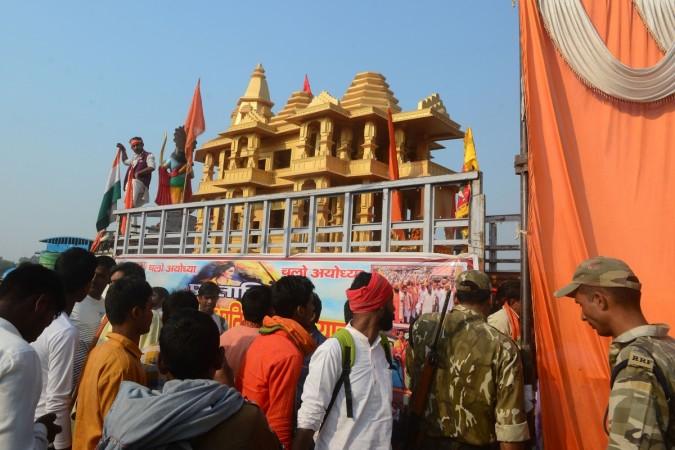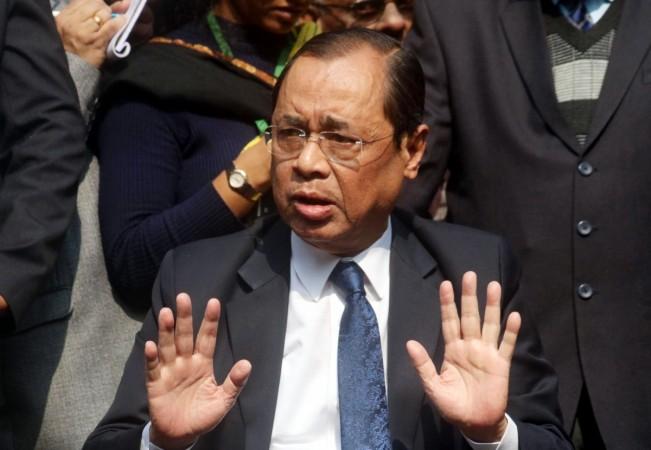
Ranjan Gogoi, the Chief Justice of India (CJI), has reportedly cancelled his upcoming multi-nation foreign trip, in which he was supposed to attend official programmes. The CJI wants to dedicate time towards writing the judgment in the politically sensitive case of Ram Janmabhoomi-Babri Masjid land dispute in Ayodhya.
According to sources, CJI Gogoi cancelled the proposed visits to some South American countries, Middle East and some other countries before they were finalised.
The Supreme Court is expected to pronounce its judgment on Ayodhya land dispute case before November 17, the day when CJI Gogoi retires.
Meanwhile, the top court will be closed for a Diwali break from October 27 to November 3.
CJI Gogoi heads the five-judge constitution bench, along with SA Bobde, DY Chandrachud, Ashok Bhushan and SA Nazeer. The bench heard for 41 days the arguments of the Hindu and the Muslim sides.
Gogoi was sworn in as the 46th CJI on October 3 last year.

Earlier, on Wednesday, the apex court reserved its judgement in the decades-old temple-mosque dispute. "This matter is going to be over by 5 pm today. Enough is enough," said CJI Gogoi.
Following Babri Masjid's demolition on 6 December 1992 by a large group of Hindu activists of the Vishva Hindu Parishad, a large scale riot broke out throughout the country.
The top court bench is finally set to wrap up the case 27 years after demolition.

















